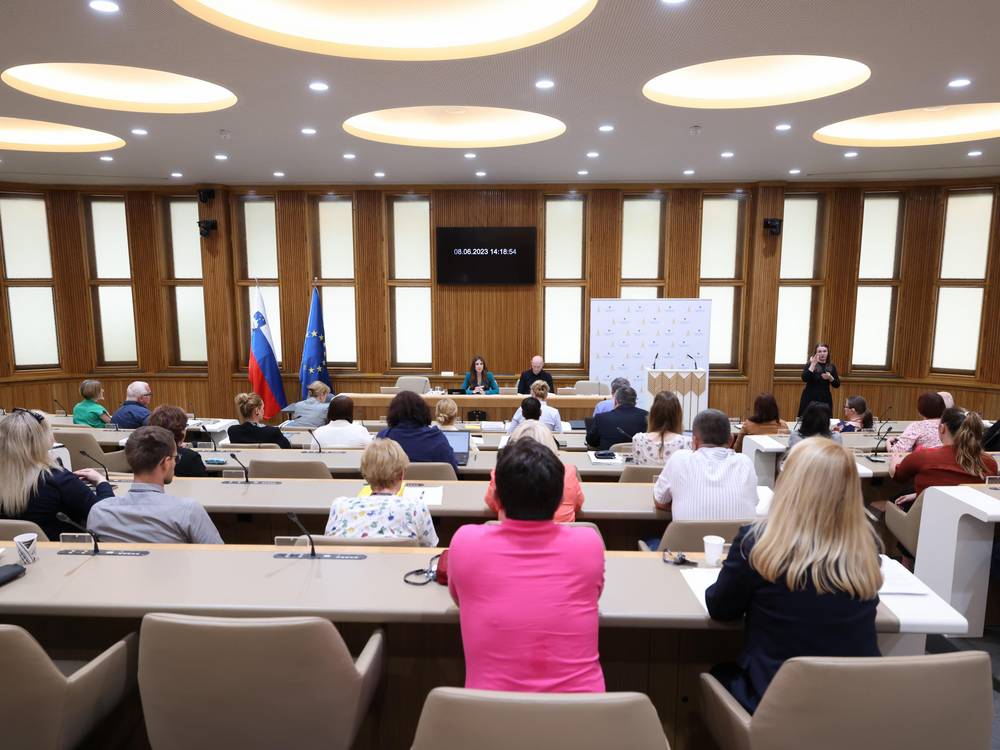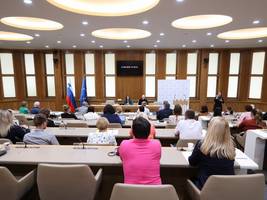On 8 June 2023, Deputy Ombudsman Dr Dijana Možina Zupanc participated at the meeting of the Commission for Petitions, Human Rights and Equal Opportunities where the realisation of the rights arising from Article 62a of the Constitution about the use and development of sign language and the language of the deaf-blind was discussed.
She highlighted that the Human Rights Ombudsman of the Republic of Slovenia welcomed the fact that the recognition of Slovenian sign language was entered into the Constitution of the Republic of Slovenia two years ago. “With this move, we as a country have recognised the users of sign language and the language of the deaf-blind as a community with its own culture, identity, and language. At the same time, in this way, the foundation was also laid for further guaranteeing the rights of these persons at all levels of society, especially in the areas of communication, education, and employment,” said the Deputy Ombudsman.
The Human Rights Ombudsman warned even then that the entry into the constitution is certainly important, but only the first step on the way to the full realisation of the rights of the deaf and deaf-blind; the key is ensuring these rights in practice. Thus, the institution of the Ombudsman has been recommending to the government ever since – including through the annual reports – to prepare by-laws as soon as possible and change the constitutionally protected right from a dead letter on paper to an active right. On behalf of the institution of the Ombudsman, the Deputy Ombudsman expressed her regret that in more than two years nothing significant has been done to systematically regulate the development of Slovenian sign language and the language of the deaf-blind.
She emphasised that hearing impairment, deafness, and deaf-blindness are often overlooked forms of disability that affect people both communicatively and socially and intellectually. They face communication problems and, due to a lack of knowledge and understanding of disability, they are occasionally characterised as non-cooperative, even conflicted, so it is difficult or impossible for them to participate equally in court proceedings or medical treatment procedures and in many other areas of life.
The institution of the Ombudsman constantly points out the necessity of regular provision of information and education in sign language, which improves the educational structure, increases employment opportunities, and improves the socio-economic status of the deaf and hard-of-hearing. Simultaneously, it is also necessary to ensure the conditions for the development of sign language. Many deaf and hard-of-hearing people are poorly educated, in part because schools do not guarantee the full presence of an interpreter. This is inadmissible discrimination, stressed the Deputy Ombudsman who once again called on those responsible to provide deaf people with education in sign language, which is their natural language.
She also reminded those present at the Commission meeting that the Ombudsman also encourages state institutions to enable all people with disabilities to be seen, heard, and understood regardless of their disability. She warned of too many complications in accessing courts, public schools, municipalities and administrative units for people with movement impairments. “The Ombudsman insists that it is essential to enable equal integration into society by means of adaptations for people with various disabilities. That is why, among other things, the rights of people with deaf-blindness must be integrated into the legislative framework, and above all, it is imperative to abandon the medical definition of deaf-blindness. It should be recognised as a specific form of disability, and, following the example of some European countries, the functional criterion of deaf-blindness should be taken into account, by determining the functional state of a deafblind person. The existing regulations should also be supplemented by taking functional criteria into account,” added Deputy Dr Možina Zupanc.
She thanked the societies and associations and everyone who invests great efforts in the realisation of rights in this area on behalf of the institution of the Ombudsman. “Each of us deserves to be a respected, equal, and valued part of society. By exercising our rights we are not only socially responsible, but we also become stronger as a society,” believes Dr Možina Zupanc.

